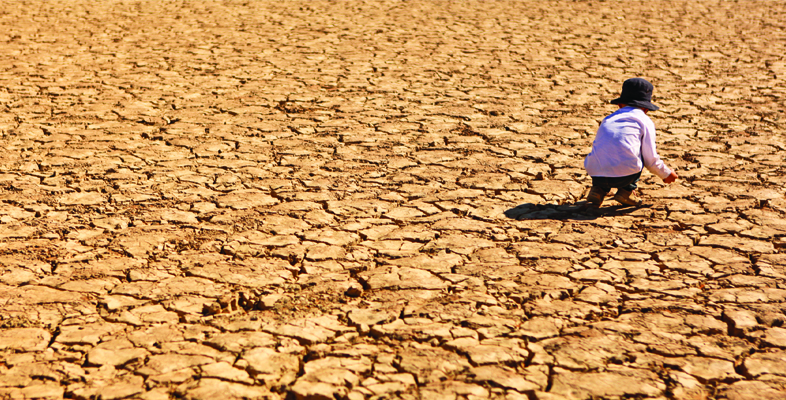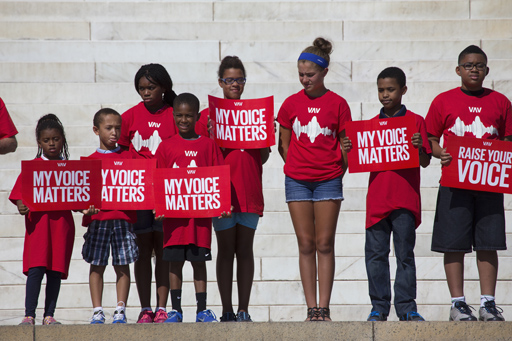1.2 The 3Ps of children’s rights
The UNCRC contains 54 articles which detail children’s rights to:
- provision (for basic needs such as food and housing);
- protection (from abuse, from degrading punishment or arrest without a proper judicial process); and
- participation (to express their views on all matters that affect them and have those views taken seriously).
In the next activity you will read a simplified version of the UNCRC.
Activity 2
First read a simplified version of the UNCRC [Tip: hold Ctrl and click a link to open it in a new tab. (Hide tip)] (open the link in a new tab or window by holding down Ctrl (or Cmd on a Mac)). Then, when you have read it through, fill in the gaps in the table below. To do this you should identify which article of the UNCRC corresponds to which right, before deciding the category – provision, protection or participation – it refers to. The first row is filled in for you as an example.
| Article | Right | Category |
|---|---|---|
| 24 | Health care | Provision |
| Play | ||
| 28 | ||
| 32 | Protection | |
| Right to express views and have them taken seriously | Participation | |
| Right to freedom of religion | ||
| 19 | Protection | |
| 34 | ||
| 13 |
Discussion
| Article | Right | Category |
|---|---|---|
| 24 | Health care | Provision |
| 31 | Play | Provision |
| 28 | Education | Provision |
| 32 | Protection from economic exploitation | Protection |
| 12 | Right to express views and have them taken seriously | Participation |
| 14 | Right to freedom of religion | Participation |
| 19 | Protection from abuse and neglect | Protection |
| 34 | Protection from sexual exploitation | Protection |
| 13 | Right to information | Participation |
The UNCRC is the most ratified convention in the history of the United Nations, ratified by every country in the world except the USA.
Since its adoption, there have also been supplementary conventions and protocols adopted which include provision for especially vulnerable children. These include the Optional Protocol to the Convention on the Rights of the Child on the Involvement of Children in Armed Conflict (2002) and The Optional Protocol to the Convention on the Rights of the Child on the Sale of Children, Child Prostitution and Child Pornography (2002).
It is important to remember, however, that the UNCRC is not a blue-print of practical policy but a set of guiding principles of what children need to ensure their best interests. Unfortunately, despite the almost universal adoption of children’s rights, many children and young people throughout the world continue to suffer. Today, children and young people are still subject to danger from malnutrition and starvation, inadequate water, lack of access to health care, slavery, prostitution, pornography, torture, racism, sexism, and armed conflicts. Poverty and inequality are all still prevalent across the globe and make the implementation of children’s rights extremely hard. Globally 17,000 children still die every day and 61,000 million children are out of school and not receiving an education.
Social justice for children, and for poorer children in particular, is still a very long way off – whatever the legislation in place – and intergenerational inequalities intersect with discrimination and prejudice to compound the infringements of children’s rights worldwide.
Such infringements, as the next section will argue, are further worsened by environmental damage, making climate change not only an environmental calamity but also a generational crisis. Climate change is hitting the youngest and most vulnerable hardest and further infringes the already tentative rights of many children and young people.

